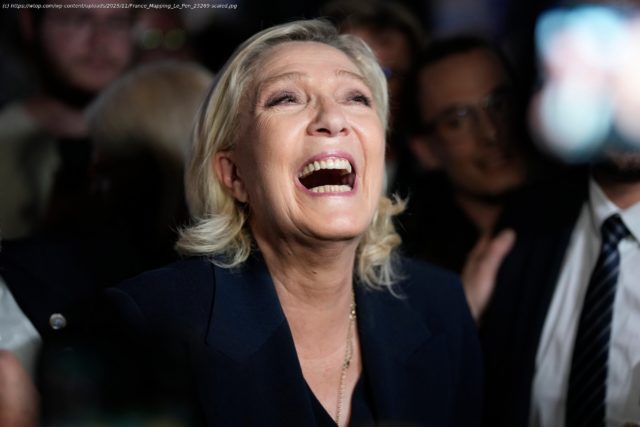PARIS (AP) — The date was May 7, 2017. Addressing cheering supporters, the newly elected leader of France, Emmanuel Macron, made a promise that now…
The date was May 7, 2017. Addressing cheering supporters, the newly elected leader of France, Emmanuel Macron, made a promise that now, in his waning 18 months as president, lies in tatters.
The rival that Macron defeated that day, Marine Le Pen, had secured 10,638,475 votes. They were nowhere near enough for the far-right leader to win. But they were too numerous for Macron to ignore, a best-ever watershed at the ballot box for Le Pen’s once-ostracized National Front party that she inherited from her Holocaust-denying father.
Gazing out over a sea of French flags, Macron acknowledged “anger” and “distress” that he said motivated Le Pen voters. He pledged to do everything to win them over, “so they no longer have any reason to vote for the extremes.”
But since then, Le Pen’s us-against-them nativist politics targeting immigrants, Muslims and the European Union have made millions more converts. Her National Rally party, rebranded in 2018 to broaden its appeal and shed its sulfurous links to her dad, Jean-Marie Le Pen, has become the largest in parliament and has never appeared closer to power, with the next presidential and legislative elections scheduled in 2027.
Many factors explain why Le Pen has gone from strength to strength. Some are intrinsic: The 57-year-old cat-loving mother of three is more polished and popular than her gruff ex-paratrooper father who had multiple convictions for inciting racial hatred and for downplaying Nazi atrocities in World War II. He died in January.
Others are external and include voter disgruntlement over wealth inequality that has worsened significantly under Macron.
An additional 1.2 million people have fallen below the poverty threshold in the world’s seventh-largest economy since the 2017 election and 2022 reelection of France’s pro-business president.
The former investment banker slashed business taxes and watered down a wealth tax to boost France’s allure for investment. Left-wing critics labeled Macron “president of the rich.”
The poverty rate was 13.8% when Macron took power and had barely shifted during the previous presidency of François Hollande, a Socialist.
By 2023, into Macron’s second term and the most recent year with official data from the French national statistics agency, the poverty rate had ballooned to 15.4%, which is its highest level in nearly 30 years of measurements.
Home
United States
USA — mix AP mapping shows France’s poorest regions backing Le Pen’s party as support...






